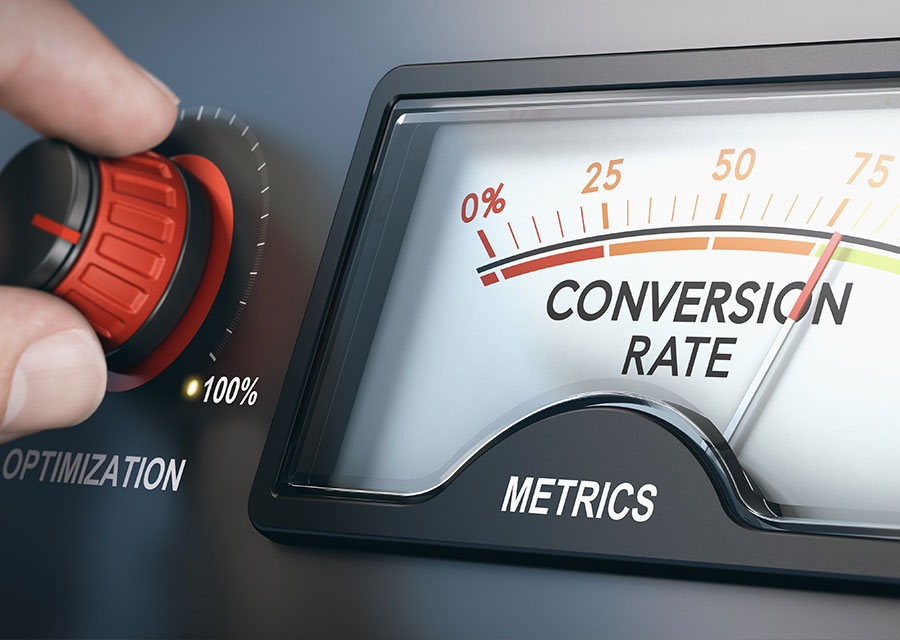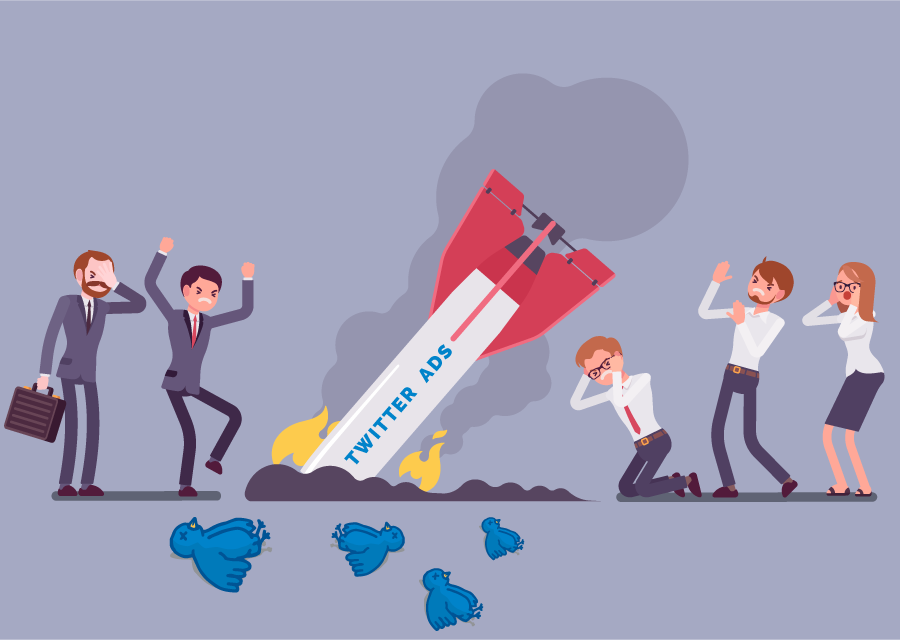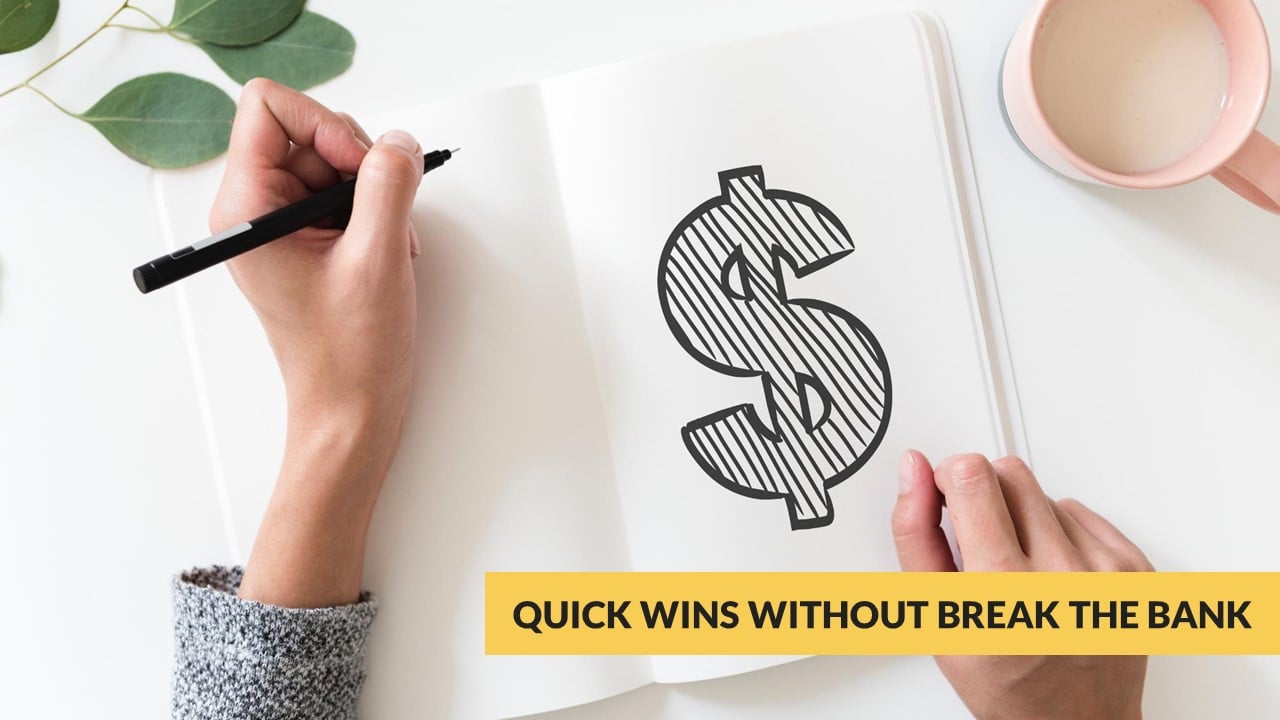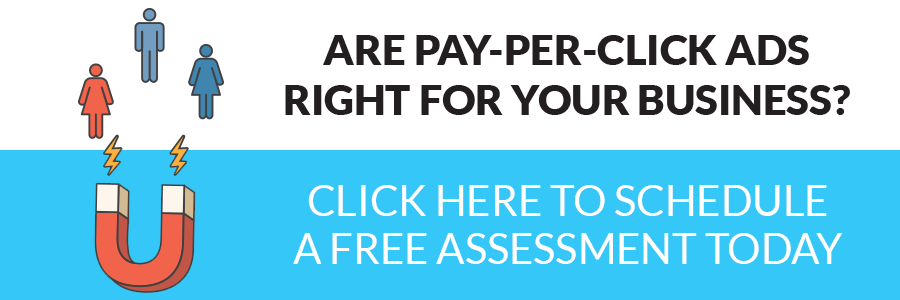9 Reasons Paid Search is Critical to a Well-Rounded Marketing Campaign
Search Engine Marketing (SEM) is built on keywords and all search marketing campaigns have two parts:
- Organic (SEO)
- Paid (PPC)
Paid creates short-term gains.
Organic lifts the needle over the long-term.
Together, they’ve got each other’s back, stitching together a powerful search marketing strategy with oomph. Think of it this way:
Paid is Advil.
Organic is Amoxicillin.
Advil works fast, but stops working if you stop popping it.
Antibiotics build up slowly but keep you alive.
You need the painkiller until the antibiotics kick in. And every now and then you need some Advil when you get a headache (a drop in organic search results).
Paid Search
Google pay per click (PPC) ads promote your website by increasing visibility on search engine result pages (SERPs). You may have noticed that paid ads appear right at the top. The top four spots are Google ads, followed by 10 organic listings. When you buy a Google ad, you pay for top-four visibility.
“Your ad copy controls your click-through rate, while your landing page influences your conversion rate.”
Organic Search
SEO is about creating quality content on your website to rank higher for the keywords around which you build your content. Provide great information, and it will get shared. Build good internal and external links, and that page will pull a higher page authority (PA). Design it with UX in mind (lots of white space and one strong call to action) and users won’t bounce. Google notices these things and says, “This page rocks and more people should see it.” SEO done right boosts your page to the top over time—but only to spot #5 at best.
Here’s the thing:
SEO is A LOT of work. Roughly, it involves these items (100% of which you do to provide value to your customer):
- Titles
- Metadata
- Hierarchy tags
- Anchor Links
- Alt tags
- URL structure
- Backlinks
- Page speed
- Mobile Responsiveness
- Keywords
- Keyword density
- Rich Media
- Competitive Analysis
This is the stuff you do every day. You update and optimize every time you add fresh content to your site. All of this organic stuff is what the search engine bots crawl to determine if you are a worthwhile authoritative rockstar or boring porridge with little credibility. Rock stars storm the charts (in a few months). Porridge poops its pants.
Optimize your paid ads to get customers to your landing page. Optimize your landing page to convert tire-kickers into paying customers.
93% of online experiences begin with a major search engine like Google, Bing, Baidu, or Yahoo, and search engine users grow by 20% every year. Landing on page one not only builds trust with your ideal customers, it gets you the clicks you need to boost the organic side of things.
If you aren’t yet on page one organically, get there with a page-one Google ad. Paid search is critical to a well-rounded inbound marketing campaign because it gets you seen by the search engine users who are looking for you (within hours). Those customers click on your ad link and that boosts your click-through rate (CTR). If you’ve done your organic stuff right (your site content matches the keyword you paid for in the ad) customers will look around. If you’ve really done your organic stuff right, they’ll click your call to action buttons and contact you, download your thing, or buy your thing.
They sip their coffee, click around, and discover all of the amazing things you can do for them. Google looks at you through its monocle and gives you an algorithmic yes-nod. Bump! You climb the ladder organically. The baton has been passed, the finish line tape is in sight, and the crowd has its air horns at full volume with lips pressed to vuvuzelas. Your sales funnel is filling up!
That is how paid search and organic search work as a team.
You optimize your paid ads to get customers to your landing page. You optimize your landing page to convert tire-kickers into paying customers. Paying customers make you happy. By transitive property, paid ads make you happy. (Okay, maybe search engine marketing doesn’t follow strict mathematical principles, but...) Search advertising puts money in the bank. Paid search is the first critical part of that marketing—customers see paid ads first and the ball rolls from there.
Keep in mind that you pay for ads to get customers to your site. But that’s when the more important part happens (SEO). You must design and write your landing page in a way that communicates your value to that customer immediately. Remember, customers only care about how your thing will solve their problem. If you don’t show them how your thing is their best choice right away, they’ll click away. A bounce is bad. Google flicks the soup off its tie that you just put there and drops you down the search results like so much rubbish. So it’s not enough to pay for Google ads. You must refine your landing pages to make your ad spend dollars to count.
Let’s put it another way (financial mathematics):
You spend $1 for a Google ad. That ad gets 100 clicks. Those 100 clicks result in one conversion because your page was garbage really. That conversion cost you $100.
“That's hogwash!” you think. So you put a bunch of conversion optimization principles to work on your landing page and you buy another Google ad.
You spend $1 for a Google ad. That ad gets 100 clicks. Those 100 clicks result in 5 conversions because your page was optimized well. Now you’re paying $20 per conversion.
Here is the moral of this story:
To take your marketing to the next-level, strategically use Google ads (PPC) to bring strangers to your website and work on your landing page optimization (SEO)—until it shines—to keep them there. Convert those strangers into loyal fans! You need the conversions that PPC gets you, but you don’t want to throw money away by falling a dollar short in the end game (on-page conversion).
Here are 9 other reasons why you should dive into PPC ads (if you aren't convinced already):
- Google ads users on average make $8 for every 1$ spent.
- The top 3 spots on the page drive 41% of the clicks. Paid search ads take up spots 1-4 on the search results page.
“With paid advertising, you get the opportunity to reach parts of your target audience that were previously unreachable.If all you focus on is traditional SEO, it doesn’t matter how high you rank, those 41% of searchers will likely never see your content based on a natural search query.”
- Based on the major marketing key performance indicators (KPIs), AdWords generates the highest conversion rate and ROI compared to social channels, webinars, backlinks, and tradeshows. “Google Ads have a click-through rate of nearly 8 percent. For users who are ready to buy, paid ads on Google get 65% of the clicks.”
- Conversion rates are higher when you retarget with paid search. Showing customers the same ads a few times will push them further down the funnel. Paid search ads remind your customers why they liked you in the first place—and they go back.
- Your competitors are paying for ads. Even if you are going gangbusters with your organic keywords, your page shows up under the paid ads—underneath your competitor’s paid ads. So get in there! Grab your share of the visibility!
- It’s automated, unlike social media marketing. Paid search ads take less of your time—you automate your PPC ads. Compared to social media marketing (which doesn’t have a good ROI and takes a ton of time), paid ads cost a little money but allow you to focus your time on conversion optimization.
- It’s independent. PPC ads don’t depend on Google’s algorithm. If you want 1000 hits, you pay for 1000 hits.
- Paid ads are easy to scale. To scale your organic results, you create more quality content and wait a few months to see the boost. To scale your paid results, you pay a bit more or target another keyword and your ad appears more often, immediately.
- Lastly, try PPC ads because only paying for ads or only focusing on organic marketing (doing 50% of the search engine marketing story) feels like this:
Paid search is only critical if you care about getting clicks. And you wouldn't be here if you didn't. If you are here, it is because you trust ThinkFuel as an authority on conversion optimization and inbound marketing. So, take our word for it: paid search is a critical part of a well-rounded search engine marketing campaign.
If you're on board but you don't know where to begin, we break it down here step-by-step.
You've got this!
Table of contents
Share this
You May Also Like
These Related Stories

Conversion Rate Optimization - How to Get More Website Leads

Why I Don’t Love Twitter Ads for B2B Lead Generation

